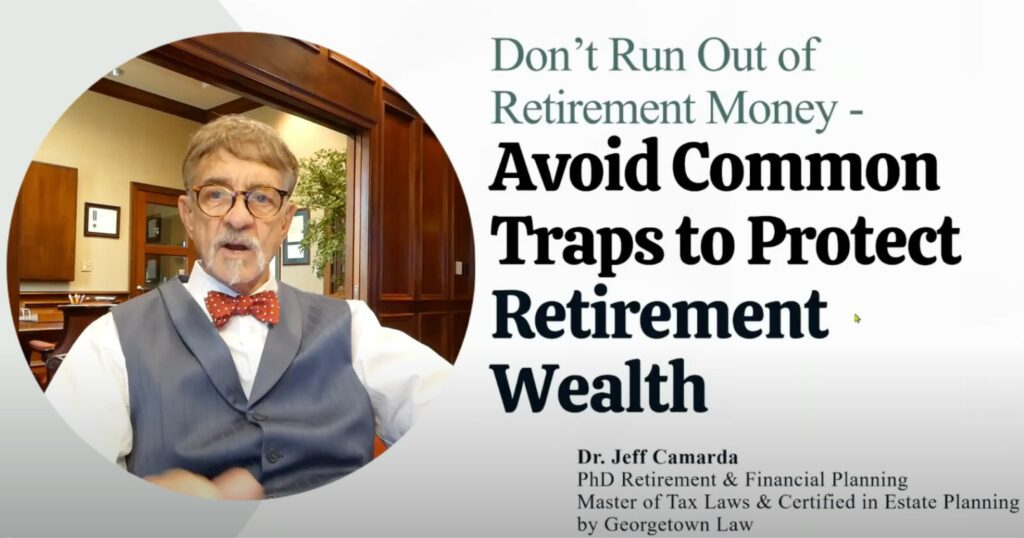What are probate assets?
So-called probate assets are those which you own at death, and which do not pass outside of probate because of the way they are titled.
Non-probate assets pass by beneficiary or because of how they are titled
Examples of non-probate assets -those which automatically bypass probate, and will not be affected by any will of yours – are things which are titled with someone else having a survivorship right (titled joint tenants with right of survivorship “JTWROS” or tenants by the entirety “T by E”), and assets which carry beneficiary designations, like life insurance, annuities, and qualified plans and IRAs. The first type pass “by operation of law”, and the second “by contract”, and either way they do not pass by will (or lack thereof). It is important to remember that what you say in your will won’t affect these assets: the title or beneficiary designation controls.
What is the probate estate? Why does having a will guarantee probate?
Everything else you own comprises your probate estate – the part the judge gets to figure out. Do not confuse the probate estate with the estate for tax purposes: everything may be in the pot when we look at estate taxes, even if you have no probate assets. The distinction applies only to the mechanism by which title passes. Having a will – or at least some measure of probate assets – guarantees probate.
Using a pourover will with trusts to have a fair and uniform distribution
Even if you decide to use trusts – which for most of you I heartily recommend! – and own nothing which will wind up in probate, it is a good idea to at least have what is called a pourover will, which says that if you forget to put any property in your trust’s name during your life (at least cars and such), that you want to “pour” these assets into your trust at death.
This way everything will be divided according to the trust’s provisions, with the trust acting as a will substitute.
Powers of attorney, living wills, and health care powers
The attorney will probably also suggest the preparation of some other documents at this time, such as a living will (which states your desire for life-sustaining medical assistance – to “pull the plug” or not – if you are unable to speak for yourself), a health care power – giving someone else the right to make your health care decisions if you cannot (the surgery or the chemo…and you thought “paper or plastic” was bad!), and a durable power of attorney (which gives someone else, whom you absolutely trust, the power to sign your name, spend your money, and attend to your affairs in case you become legally unable to do so).
Powers of attorney – riskier than most people understand?
Be careful about this last one, because you give another complete power over your checkbook, and because banks and others can be reluctant to accept them unless they are quite recent.
Avoiding the nightmare of guardianship with trusts or powers of attorney
But if you don’t have a usable one or use a trust as we will see in just a moment, you run the risk of being exposed to guardianship proceedings if you get to the point where you can’t manage your financial affairs. Without a mechanism in place, you face the humiliation of a court proceeding the purpose of which is to prove you lack the mental capacity to take care of yourself, and that a guardianship must be set up to administer to your needs and interests.
This is demeaning for all (including your loved ones who may call for it to help you), quite expensive, and is a great argument for using a living trust, especially if you are near the age where the possibility of forgetting to buy food and pay your bills is a real one.
Why trusts are better than joint property titling – unintentionally disinheriting your kids
Why use a will, or trust, at all, you say, if you can title property with a survivorship feature so that it bypasses probate entirely? Look at this unlikely but all too common scenario. Mom and Dad hold everything important (home, bank accounts, retirement plans) either in both names, or with the other as beneficiary.
Their simple “I love you” will leave everything to the other, or to the kids if both die. Dad dies, Mom gets everything, and after a few years remarries. This new couple follows a similar pattern, with joint property, each other as beneficiaries, and so on. Mom dies, and everything goes to “new” Dad. The kids from the first marriage – who have lost both parents – have legal claim to not one cent. New Dad may be generous, but has absolutely no legal obligation to do so: the kids have been completely though unintentionally disinherited by their parents.
Trusts to protect surviving spouses income and children’s inheritances
Unlikely, yes, but the possibility is important enough that you should consider planning against it. And trusts are the best solution, especially since we don’t want the kid to get his hands on the checkbook at age 18. Even if your kids are grown up, and you are remarried (or think it may happen) have a good look when we talk about planning for multiple marriage situations. However you do it, the objective is to get the assets configured so that the surviving spouse can use them, but does not have so much control that she can (on purpose or otherwise) give or bequeath them to anyone but your children. And the pressures, in any marriage, to title assets jointly can be strong – unless it has been made impossible to do so.




